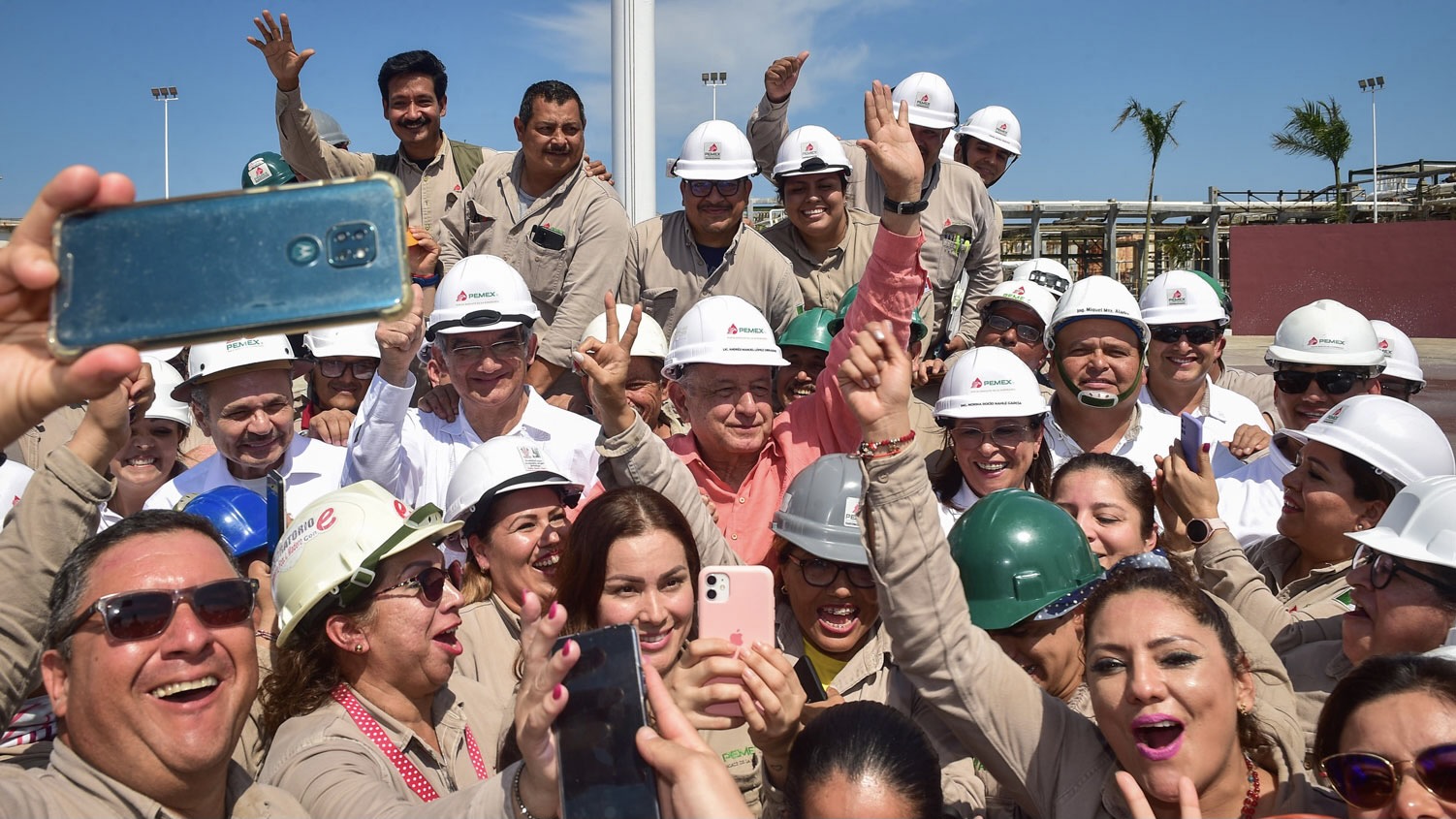Tens of thousands are expected to mobilize in Mexico City’s Zocalo on March 18 to mark 85 years since the expropriation of oil by former Mexican President Lázaro Cárdenas. The mobilization was called for by President Andrés Manuel López Obrador (AMLO) who has linked the move by Cardenas 85 years ago to his administration’s current efforts at building energy independence.
The Oil Expropriation Decree by Cárdenas in 1938 ordered the expropriation of the oil fields, machinery, installations, buildings, refineries, distribution stations, oil pipelines, and other physical assets of 17 foreign companies and their subsidiaries that had control over the industry. This meant that Mexico’s oil resources and industry would benefit the people and strengthen the national economy.
The major motivation for Cárdenas’ decision was the labor conflicts between Mexican workers and the foreign oil companies over salaries and working conditions. With the expropriation and founding of Mexico’s state oil company Pemex three months later, workers in the sector were not only empowered by the president’s intervention on their behalf, but their conditions also saw significant improvement.
The March 18 mobilization also marks one month since AMLO decreed the nationalization of the country’s lithium, approved in April 2022 by the Mexican Congress. Lithium is classified as a “critical mineral” and is used to manufacture rechargeable electric batteries used in a variety of electronics such as electric cars, computers, and cellphones.
In his address announcing the decree, AMLO recounted Cárdenas’ bold stance to confront the foreign oil companies head on and declared, “What we are doing now, keeping the proportions and in another time, is nationalizing lithium so that it cannot be exploited by foreigners, not from Russia, China, or the United States. Oil and lithium are of the nation, of the Mexican people, of you all, and of all that live in this region of Sonora, of all Mexicans.”
Citlalli Hernández, a Senator and the General Secretary of the ruling leftist party MORENA, told Peoples Dispatch that the 85 year anniversary “comes at an interesting moment, at an important moment wherein it is important to reiterate the call for national sovereignty.”
For Hernández, the nationalization of lithium is “a parallel of what oil expropriation meant [in 1938], which is to say, that this resource that today is so highly valuable and important, does not remain in the hands of transnational companies or private companies, that it be a resource at the service of the State, property of the nation.”
Building self-sufficiency
In his last campaign speech days before the 2018 elections, AMLO outlined basic points for his proposal to lead a “Fourth Transformation” of Mexico to fully do away with the corrupt regime of injustice and privileges which had characterized the previous governments. Regarding energy production, AMLO stated at the time: “The energy sector will be recovered. The goal is to produce gasoline, diesel, gas, and electric energy that we consume so that we can stop buying them abroad and reduce the prices of these goods to benefit the consumers and the national companies.”
Since taking office in 2018, this is precisely what the AMLO government has attempted to do.
In addition to the nationalization of lithium, his government also launched an ambitious program to recover the country’s oil industry to decrease imports of crude oil and increase processing of oil in refineries. This recovery was also done with the intention to control the price of fuel and to avoid the gasolinazos or the surprise fuel hikes that happened during his predecessor Enrique Peña Nieto’s government which were met with mass rejection. In his daily morning press conference on March 16, the head of state and his Energy Secretary, Rocío Nahle García, reported on the advances made so far in this regard.
Nahle García said that one of the major advances since 2018 is the rehabilitation of six refineries and the construction of the Olmeca Refinery, which will be fully operational by July 2023, all part of the national refinery system, which has vastly amplified the country’s production capacity to 922,000 barrels of crude processed a day. The Energy Secretary declared that by 2024, the country will have energy self-sufficiency and they will no longer need to buy diesel or gasoline abroad.

For Hernández, AMLO’s commitment to energy sovereignty marks a tremendous shift in the path the country was on previously. “If the tendency continued to privatize electricity, it is likely that in the next few years, the State would have limited intervention. Companies would see energy as a commodity, they would raise rates, the poorest people would suffer, and there would be a profound energy crisis,” she said.
“Today Mexico is proposing something completely different. There is a different government and it is taking different decisions to change a situation that looked bleak.”
Hernández added that this push towards sovereignty is not limited to the fossil fuel industry, but is also about scientific and technical development around lithium and the development of alternatives. “We are guaranteeing energy self-sufficiency, but also proposing an energy transition that allows us to think about clean energy. We are recovering several of our hydroelectric dams that had been abandoned by the neoliberal governments who also privatized energy in the name of clean energy.”
The push towards sovereignty also has social and cultural implications, Hernández explained, “It means to stop being the backyard of other countries and to stop being a country that only generates raw materials and continues suffering inequalities despite its profound natural wealth.”
Mexican leaders rebuke US threats
The call to defend national sovereignty on March 18 has taken on a new importance following the call from several conservative US lawmakers for military intervention in Mexico to fight drug cartels following the death of two tourists. The declarations were vehemently rejected by AMLO and in the daily morning press conference on March 10, he announced that the Foreign Minister Marcelo Ebrard would go to Washington DC to address it directly with US officials.
Senator Hernández said that “We will surely be listening to a speech of the President in broad defense of sovereignty, in what it means to have control over the management of our natural resources, of our destiny, of our democracy, of our internal affairs.”
She added, “This also means, sending a message to the United States or any other power that Mexico has a government with profound popular support, that Mexico must be respected, and that we will not allow even a hint of a statement that threatens Mexican sovereignty.”






